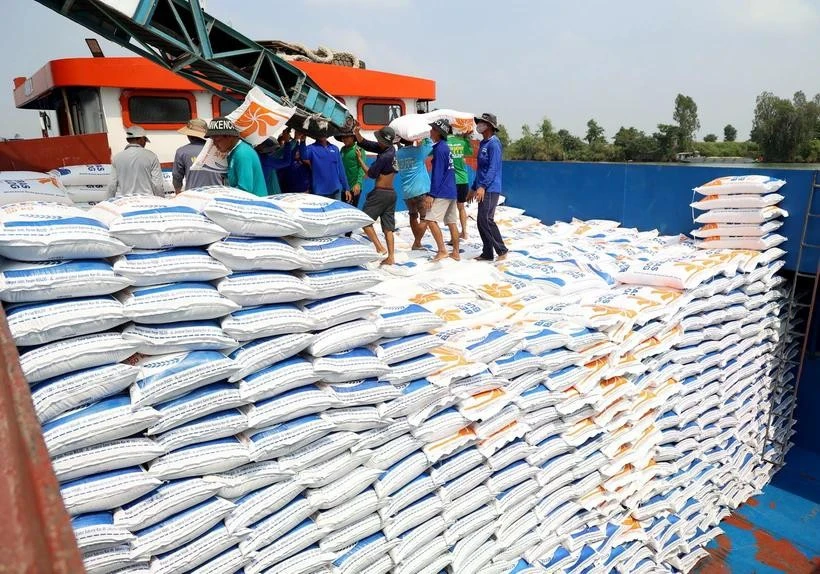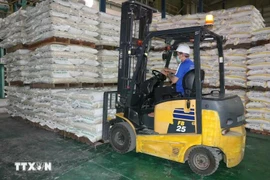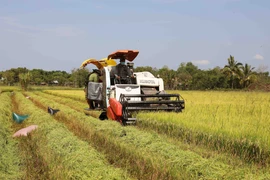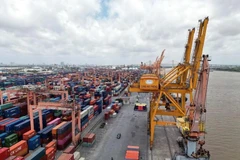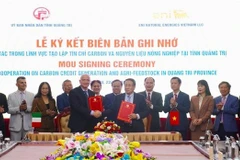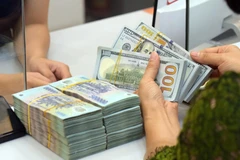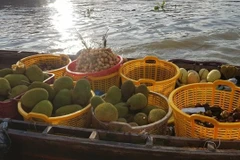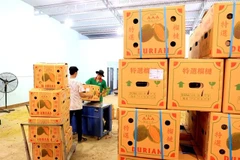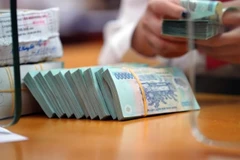Hanoi (VNA) – The Vietnamese rice sector is likely to face a host of challenges in export in 2025 after a successful year in 2024, according to experts.
They held that rice exports will likely decline in both volume and price compared to 2024, as demand weakens and competition among exporting countries intensifies. Furthermore, export opportunities for 2025 are expected to be limited, given the high baseline set in the previous year and additional market challenges, particularly with India relaxing its rice export restrictions.
Over the past two years, India’s stockpiles have remained large due to its tight restrictions on rice exports. As India begins to ease these restrictions, this will exert pressure on other rice-exporting countries, including Vietnam.
Moreover, with Vietnam’s rice prices relatively high ahead of the harvest season, many importers are turning to other countries for their supply. As a result, rice prices this year are expected to be lower than in 2023 and 2024, potentially dropping below 2022 levels or experiencing only a modest increase.
Tran Thanh Hai, Deputy Director of the Import-Export Department under the Ministry of Industry and Trade (MoIT), noted that India’s decision to lift export restrictions and the abundant supply of Indian rice will put downward pressure on global prices. However, thanks to Vietnam’s focus on improving quality and branding, domestic businesses have successfully expanded into markets such as Indonesia and the Philippines. To further support businesses, banks need to offer financial assistance, and the Ministry of Finance should expedite export tax refunds, he said, adding that the MoIT will also intensify efforts to promote rice exports.
A representative from the Vietnam Trade Office in Singapore commented that promotional efforts for Vietnamese rice in Singapore have been limited, with little large-scale marketing activity from businesses or industry associations. Current trade promotion mainly involves displaying Vietnamese rice products through the office. In contrast, countries like Thailand, Japan, and India are heavily investing in promoting their rice brands and negotiating with importers and distributors to maintain brand recognition and visibility.
The representative advised exporters to boost competitiveness and product quality to further conquer the nearly 6-million strong Singaporean market.
Looking back on 2024, analysts highlighted that Vietnam’s rice exports reached a record high, partly due to higher unit prices compared to previous years. The average export price of Vietnamese rice was 627 USD per tonne, up from the previous price of below 600 USD, marking a 9% increase from 2023. Vietnamese rice is now present in around 150 countries and territories globally. Furthermore, businesses capitalised on opportunities from new-generation free trade agreements beyond traditional markets such as China, the Philippines, Indonesia, and Malaysia.
In terms of market performance, Vietnam’s rice exports to Singapore continued to grow strongly in 2024, reaching an estimated 128.9 million SGD (95.09 million USD), a 28.45% increase compared to the same period in 2023. In the first half of 2024, Vietnam became the largest rice supplier of Singapore./.
